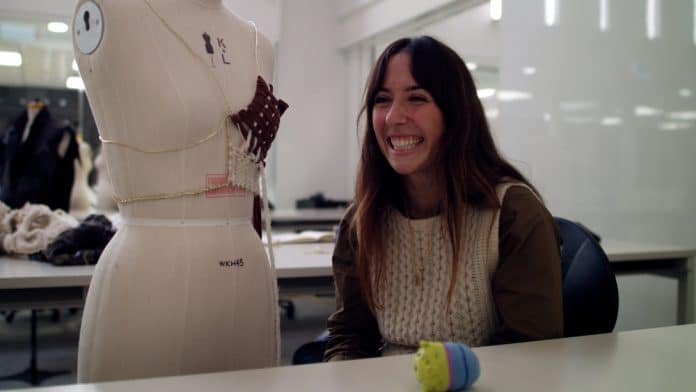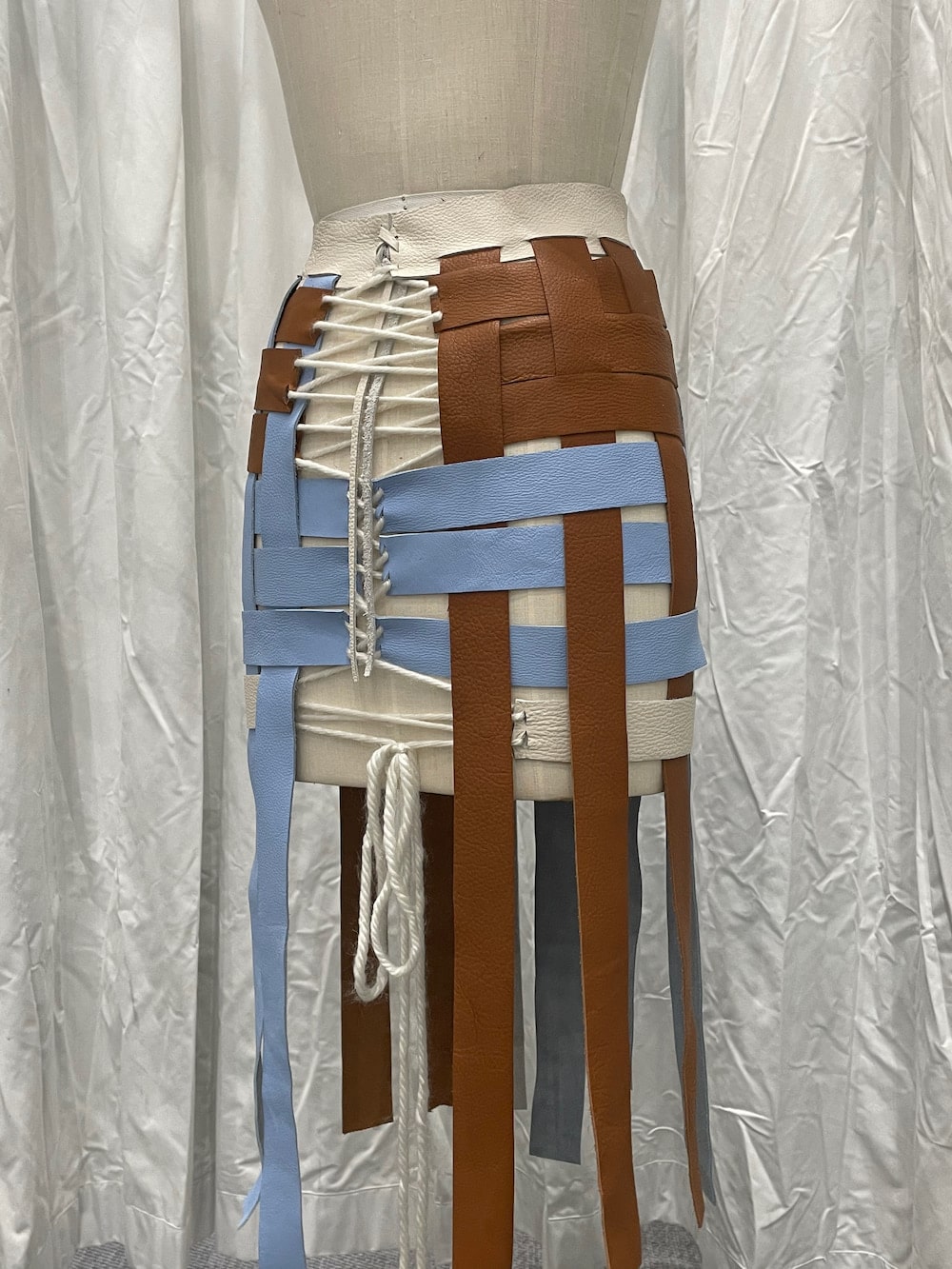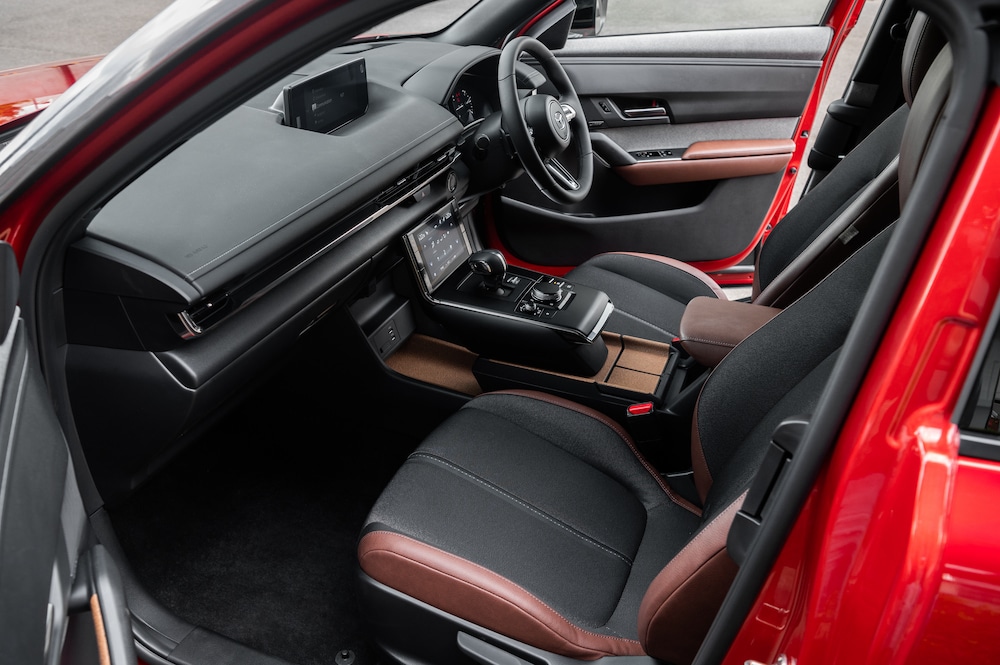
As a young girl growing up in Canberra, Lilli McKenzie was taught how to sew by her mother, making her own dress-up clothes and costumes.
Little did she know that years later she would be participating in one of the biggest sustainability design competitions of the year while studying her Masters of Fashion at RMIT University in Melbourne.
To celebrate the arrival of Mazda’s first ever MX-30, a sustainability-led design challenge was integrated into RMIT School of Fashion and Textiles’ curriculum.
In Design Driven, students were challenged to design an outfit using techniques and fabrics utilised in the car including vegan leather, heritage cork, and repurposed plastic waste, creating pieces that are innovative and sustainable whilst being fashion-forward.
With a strong interest in sustainability and the future of fashion, Ms McKenzie was offered one of the finalist places, which will be judged by fashion icon Margie Woods of Australia fashion label, Viktoria & Woods, and Mazda staff.
“I think that sustainability within fashion is probably the most important factor for my design process. I can’t step out the door without it in mind,” she said.
“It’s very important for a young upcoming designer; you have to consider every aspect of sustainability.”
To ensure all of the students’ projects are meeting sustainability guidelines, each project will be reviewed and aligned with the United Nations Sustainable Development Goals; a set of 17 global goals that are designed to be a blueprint for achieving a better and more sustainable future for all.
For her honours project, Ms McKenzie is developing a weaving-based project that involves recycling-based archetypes and weaving them into new forms.

For the Design Driven competition, her design is very similar.
“For Mazda, it’s very similar and it was very similar to building a car – you have to create the framework first,” she said.
“I incorporated their materiality into my design work, it’s been a very complementary experience.”
In her design, which is currently in the protype stage, Ms McKenzie is passionate about using the heritage cork because “it’s the hardest fabric to use”.
“I’m using architecture and fine art to make frames of weaving, which I consider a collaboration between art and architecture.
“I recently found out looming is a term used to describe the weaving of electrical wires in cars which is cool because it’s similar to my process.”
Ms McKenzie isn’t one to shy away from unusual fabrics, often combining multimedia art forms to create wearable pieces and experimenting in bold colour combinations, inspired by her friends and family.
“I’m kind of designing for the people around me,” she said.
“I would consider my friends and family my muses.”
At the culmination of the semester, the winner will be announced, with the judges considering the sustainable processes utilised as well as the student prototypes’ overall look and design.
The winner will be awarded a trip to Mazda’s Japan headquarters to experience a mentorship experience with Mazda’s global design chief, Ikuo Maeda.
While the alluring prize, mixed with her competitive edge, is a driving factor for Ms McKenzie, she has already managed to secure a name for herself in the fashion industry.
In 2019 she was chosen to design the Melbourne and Olympic Park Trust staff uniforms, which are worn by over 1,000 personnel.
Her advice for other young up and coming designers based in the ACT is simple: “Just because you’re in Canberra it doesn’t mean you’re limited.
“It’s hard to not be inspired by the beautiful aspects of Canberra; a lot of my design work last year was inspired by the bush and the walking tracks while I was in lockdown with my parents,” Ms McKenzie said.
“Just because there’s not resources like RMIT, it doesn’t mean there isn’t the opportunity.”

For more Fashion:








